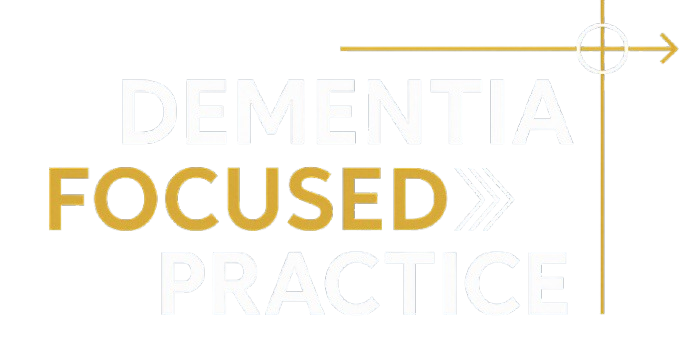Social Security Disability for Dementia in New Jersey

Alzheimer’s and similar types of dementia can profoundly impact both the person diagnosed and their loved ones. In addition to the emotional strain that accompanies such a diagnosis, families often face significant financial burdens related to care and treatment, as well as job loss.
Social Security Disability for dementia may alleviate some of the financial difficulties, but obtaining it is not always easy. While people with dementia may qualify for Social Security Disability Insurance (SSDI), navigating the application process can be both emotionally exhausting and financially challenging.
At the Van Dyck Law Group, our legal experts can help you with this stressful situation. We’ll review your needs, assist you with the application process, and discuss other options for paying for care, if necessary. At the same time, we can help you with related legal concerns, such as establishing a power of attorney or finalizing your estate planning. Our New Jersey Alzheimer’s and dementia planning services can help you learn more about your options.
What is Social Security Disability for Dementia?
Social Security Disability Insurance (SSDI) provides monthly payments to people who are unable to work due to a disability. A disability can be mental or physical, as long as it affects the person’s ability to work. We’ll discuss the criteria used to determine disability later in this article.
Alzheimer’s or other forms of memory loss are most common in adults older than 65, who are frequently retired and no longer working. However, early-onset Alzheimer’s does occur, with a frequency of about 110 diagnoses for every 100,000 people between the ages of 30 and 64.
Additionally, some people continue working past the age of 65 in order to save more for retirement.
If you or a loved one is facing such a diagnosis while still working, you may have questions or concerns, such as:
- Is memory loss a disability?
- Does Alzheimer’s qualify for disability?
- Will you be able to continue working, and for how long?
- What happens if you are no longer able to work but haven’t yet reached retirement age or saved enough for retirement?
These worries may be amplified if you have young children or a spouse who depends on your income.
If you are approved, SSDI could help fill in the income gaps that remain if you have to retire sooner than planned due to your illness.
How to Qualify for Social Security Disability Benefits for Dementia
To qualify for SSDI, a person must meet two basic conditions:
- They must have worked in jobs that are covered by Social Security.
- They must meet the Social Security Administration’s (SSA) definition of disability.
Social Security work credits are earned based on the amount of income you receive from employment or self-employment in a given year, as reported on your filed taxes. You can accumulate a maximum of four credits annually.
The amount of earnings needed for one credit changes annually. For 2025, one credit is equivalent to approximately $1,810 in income. If you earned at least $7,240 for the year, you received all four credits. (Remember that the threshold changes regularly, so you did not necessarily earn four credits for every year that you previously made that amount.)
Depending on your age, you may need more or fewer credits to qualify for SSDI benefits. Typically, you are expected to have 40 credits, with at least 20 earned within the last ten years before becoming disabled. However, people who are applying at a younger age sometimes need fewer credits.
Filing for Social Security Disability in New Jersey
You can apply for SSDI online or by phone, although there are often significant wait times for the phone option. Once the application is submitted, you or your loved one will need to complete an interview and may be asked to provide additional documents, such as medical records and work history.
The forms and requirements can be formidable, especially for someone struggling with memory challenges or cognitive decline. If you have been diagnosed with Alzheimer’s or memory loss, you may want to ask a relative to help you gather the necessary items. Be sure to seek a copy of all medical records, including test results, intake and discharge reports, and doctors’ notes.
Additionally, you should put together a list of your medications and therapies, as well as people who can speak to the changes in your mental state. Sometimes, letters from witnesses who can attest to your cognitive difficulties are helpful.
Once you’ve collected the necessary paperwork, an experienced elder law attorney can assist you in completing the forms and ensuring that everything on your application is accurate.
The purpose of this process is to determine if you qualify based on the SSA’s definition of disability. You will need to meet the following medical eligibility criteria:
- Your medical condition prevents you from performing work that qualifies as substantial gainful activity (SGA).
- Due to your condition, you’re unable to return to your past job or transition to other types of employment.
- Your condition has lasted, or is expected to last, for a continuous period of at least 12 months or is likely to be fatal.
Social Security Compassionate Allowances
Early-onset Alzheimer’s is one of several diagnoses that qualify for a “Compassionate Allowances” initiative (CAL), meaning that your application can be fast-tracked for consideration. In other words, the SSA recognizes the severity of early-onset Alzheimer’s, so your waiting time may be reduced under Social Security compassionate allowances.
How Does the Review Process Work?
Even with CAL, you will still need to show that you have “significant cognitive decline” in at least one of the following categories:
- Complex attention
- Executive function
- Learning
- Memory
- Language
- Perceptual-motor skills (abilities related to receiving, understanding, and utilizing sensory information)
- Social cognition
The SSA’s review will also include determining if you have a “severe” or “marked” decline in certain work-related areas of function:
- Comprehending, retaining, and applying information (such as following directions, acquiring new knowledge, and putting it to practical use)
- Maintaining focus and completing tasks efficiently and within a reasonable timeframe
- Adjusting to changes and managing personal behavior (including recognizing and responding appropriately to everyday risks)
- Engaging with others in a respectful and socially acceptable way
Having at least one severe limitation or two marked limitations will improve your chances of being approved.
In some situations, it may be possible to receive approval without any severe or marked limitations, but only if your symptoms have been “severe and persistent” for at least two years and you reside in a structured setting (like a nursing home or group home).
What If Your Application is Denied, But You’re Still Unable to Work?
A denial can be extremely frustrating, and it might happen for a wide range of reasons. The SSA’s review typically begins with your medical records. In some situations, incomplete records, clerical errors, or a healthcare worker’s failure to correctly note symptoms can affect whether an application is approved or declined.
If you or a family member believes your application was denied incorrectly, please contact an elder law attorney right away. We may be able to appeal the denial if we find evidence that it should have been approved. Appealing a denial can be a hard process, but engaging the services of an experienced lawyer may improve your chances of success.
In the meantime, we’ll evaluate if you qualify for other programs, such as Supplemental Security Income (SSI). SSI is a needs-based program that assists with necessities such as food, clothing, and housing for individuals with limited financial resources. Unlike SSDI, you do not need to meet work history requirements, but you do need to have a disability or be at least 65. Some people may qualify for both SSDI and SSI.
How Much Does Social Security Disability for Dementia Pay?
If you qualify for disability benefits, your payments will be calculated based on your average lifetime earnings prior to your disability. In general, most people will receive between $700 and $1,500 per month, although these payments could be reduced if the recipient has any outside income.
Other factors that can affect your monthly amount include:
- If you were self-employed, owned a business, or did freelance work and paid the required self-employment taxes
- Whether you held positions that were exempt from Social Security contributions, like certain state or local government roles
- Any extended breaks from employment, such as time taken off for raising children or dealing with a chronic medical condition
The best way to find out your estimated monthly payment is to speak with a lawyer who can help you calculate the amount you qualify for and complete the application process.
Social Security Disability for Dementia FAQ
What is the Benefit Approval Timeline After Applying for Disability Benefits?
Unfortunately, it’s hard to give an exact timeline. If you apply under CAL, the process is expedited. Still, it varies based on several factors, including the number of other CAL applications currently under review. In some cases, you may receive an answer within days; in others, you may have to wait several weeks or even months.
However, this is still a shorter process than the typical SSDI application, which can take 6 to 8 months for processing.
What If Your Benefits Payments Aren’t Enough to Cover Your Medical Care?
The cost of treatment, including long-term care services, is another pressing concern for people diagnosed with early-onset Alzheimer’s or memory loss. The good news is that you may be eligible for other state assistance programs, such as Medicaid or Medicare, or in some cases, both. These programs can help you cover the costs of medications, therapies, and sometimes even room and board in a long-term care facility.
For example, people who are approved for SSDI are automatically enrolled in Medicare after two years. However, you may qualify for Medicaid in the meantime, based on your income and assets.
When you consult with an elder law attorney about your disability benefits application, we’ll go over your eligibility for these programs. If you’re a good candidate, we can help you apply for Medicaid, Medicare, or other assistance. If you don’t qualify for Medicaid or Medicare, we’ll discuss different options to pay for care, such as liquidating assets.
How Can You Get Help With Your Social Security Disability Application or Estate Planning in New Jersey?
When you or a loved one is facing the challenges of legal planning in New Jersey after an Alzheimer’s diagnosis, the Van Dyck Law Group is ready to help. Our skilled elder law attorneys are committed to guiding you through your options, answering your questions, and drafting legal documents that reflect your goals.
We understand both the emotional and logistical difficulties that this diagnosis can bring, as well as the challenges of the application process. For these reasons, we’re here to provide support and guidance every step of the way. Call us today at (609) 293-2621.


